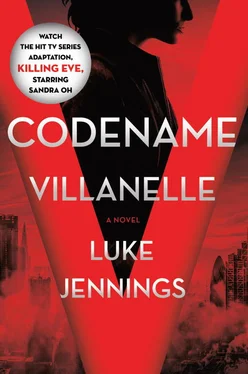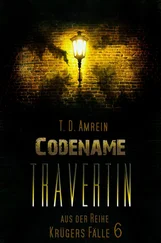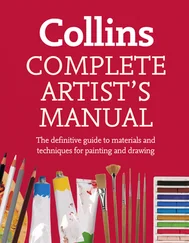Luke Jennings
CODENAME VILLANELLE
The Palazzo Falconieri stands on a promontory on one of the smaller Italian lakes. It’s late June, and a faint breeze touches the pines and cypresses that cluster like sentinels around the rocky headland. The gardens are imposing, and perhaps even beautiful, but the deep shadows lend the place a forbidding air, which is echoed by the severe lines of the Palazzo itself.
The building faces the lake, and is fronted by tall windows through which silk curtains are visible. The east wing was once a banqueting hall, but now functions as a conference room. At its centre, beneath a heavy art deco chandelier, is a long table bearing a Bugatti bronze of a panther.
At first glance the twelve men sitting around the table look ordinary enough. Successful, judging from their quietly expensive clothes. Most are in their late fifties or early sixties, with the kind of faces that you instantly forget. There is an unblinking watchfulness about these men, however, which is not ordinary.
The morning passes in discussion, which is conducted in Russian and English, the languages common to all those present. Then a light lunch—antipasti, lake trout, chilled Vernaccia wine, fresh figs and apricots—is served on the terrace. Afterwards the twelve men pour themselves coffee, contemplate the breeze-ruffled expanse of the lake, and pace the garden. There are no security people, because at this level of secrecy, security people themselves become a risk. Before long the men have returned to their places in the shadowed conference room. The day’s agenda is simply headed “EUROPE.”
The first speaker is an ageless, darkly tanned figure with deep-set eyes. He looks around him. “This morning, gentlemen, we discussed Europe’s political and economic future. We talked, in particular, about the flow of capital, and how this can best be controlled. This afternoon I want to speak to you about a different economy.” The room darkens, and the twelve turn to face the screen on the room’s north wall showing an image of a Mediterranean port, of container ships and ship-to-shore gantry cranes.
“Palermo, gentlemen, today the principal point of entry for cocaine into Europe. The result of a strategic alliance between the Mexican drug cartels and the Sicilian Mafia.”
“Aren’t the Sicilians a spent force?” asks a heavyset man to his left. “I was under the impression that the mainland syndicates ran the drugs trade these days.”
“That used to be the case. Until eighteen months ago the cartels dealt principally with the ’Ndrangheta, from the southern Italian region of Calabria. But in recent months a war has broken out between the Calabrians, and a resurgent Sicilian clan, the Greci.”
A face appears on the screen. The dark eyes coldly watchful. The mouth a steel trap.
“Salvatore Greco has dedicated his life to resurrecting the influence of his family, which lost its place in the Cosa Nostra power structure in the 1990s, following the murder of Salvatore’s father by a member of the rival Matteo family. A quarter of a century later Salvatore has hunted down and killed all of the surviving Mattei. The Greci, and their associates the Messini, are the richest, most powerful, and most feared of the Sicilian clans. Salvatore is known to have personally murdered at least sixty people, and to have ordered the deaths of hundreds more. Today, at fifty-five years of age, his hold over Palermo and its drug trade is absolute. His enterprises, worldwide, turn over some twenty to thirty billion dollars. Gentlemen, he’s practically one of us.”
A faint ripple of amusement, or something approximating to it, runs around the room.
“The problem with Salvatore Greco is not his predilection for torture and murder,” he continues. “When mafiosi kill mafiosi it’s like a self-cleaning oven. But recently he has started ordering the assassination of members of the establishment. To date, his tally is two judges and four senior magistrates, all killed by car bombs, and an investigative journalist, who was gunned down last month outside her apartment. The journalist was pregnant at the time of her death. The child did not survive.”
He pauses, and raises his glance to the screen with the image of the dead woman, spreadeagled on the pavement in a pool of blood.
“Needless to say, it has not been possible to directly implicate Greco in any of these crimes. Police have been bribed or threatened, witnesses intimidated. The code of silence, or omertà , prevails. The man is, to all intents and purposes, untouchable. A month ago I sent an intermediary to arrange a meeting with him, as I felt that we needed to reach some sort of accommodation. His activities in this corner of Europe have become so excessive that they threaten to impact on our own interests. Greco’s response was immediate. The following day I received a sealed package.” The image on the screen changes. “It contained, as you can see, my associate’s eyes, ears and tongue. The message was clear. No meeting. No discussion. No accommodation.”
The men around the table regard the grisly tableau for a moment, then return their gaze to the speaker.
“Gentlemen, I think we need to take an executive decision concerning Salvatore Greco. He is a dangerously uncontrollable force, and beyond the reach of the law. His criminal activities, and the social havoc they entail, threaten the stability of the Mediterranean sector. I propose that we remove him from the game, permanently.”
Rising from his chair, the speaker makes his way to a side-table, returning with an antique lacquered box. Taking out a black velvet drawstring bag, he pours its contents on the table in front of him. Twenty-four small ivory fish, twelve of them aged to a smooth yellow, twelve of them stained a dark blood-red. Each man receives a contrasting pair of fish.
The velvet bag makes its way around the table counter-clockwise. When it has made a full revolution, it is passed to the man who proposed the vote. Once again, the contents of the bag are poured onto the dimly gleaming surface of the table. Twelve red fish. A unanimous sentence of death.
It’s evening, a fortnight later, and Villanelle is sitting at an outside table at Le Jasmin, a private members club in Paris’s Sixteenth Arrondissement. From the east comes the murmur of traffic on the Boulevard Suchet, to the west is the Bois de Boulogne and the Auteuil racecourse. The club’s garden is bordered by a trellis hung with blossoming jasmine whose scent infuses the warm air. Most of the other tables are occupied, but conversation is muted. The light fades, the night awaits.
Villanelle takes a long sip of her Grey Goose vodka Martini, and discreetly surveys the surroundings, particularly noting the couple at the next table. Both are in their mid-twenties: he elegantly dishevelled, she cat-like and exquisite. Are they brother and sister? Professional colleagues? Lovers?
Definitely not brother and sister, Villanelle decides. There’s a tension between them—a complicity—that’s anything but familial. They’re certainly rich, though. Her silk sweater, for example, its dark gold matching her eyes. Not new, but definitely Chanel. And they’re drinking vintage Taittinger, which doesn’t come cheap at Le Jasmin.
Catching Villanelle’s eye, the man raises his champagne flute a centimetre or two. He murmurs to his companion, who fixes her with a cool, assessing stare.
“Would you like to join us?” she asks. It’s a challenge, as much as an invitation.
Villanelle stares back, unblinking. A breeze shivers the scented air.
Читать дальше













